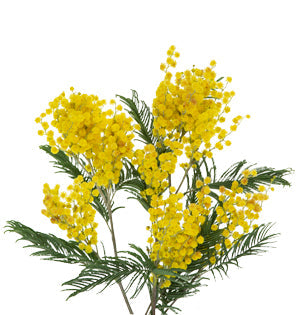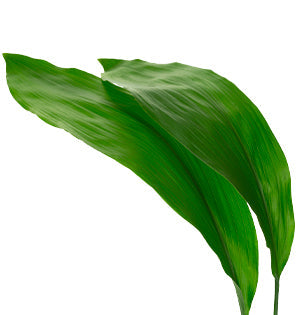
Acacia
Trees or shrubs with fluffy, ball-shaped clusters of small, delicate, fragrant, flowers without petals and delicate, gray-green fringe cut leaves.
Welcome to our Flower Library. In these pages you will find over 134 of the most common florist flowers and foliages used in floral design. We have pictured and detailed the common and botanical names of each flower along with it's seasonal availability and colors. You may search for a flower by name or by image. For each flower we have detailed the care and conditioning methods, storage temperatures, design notes and problems specific to each flower. Also included in these pages are interesting facts about each flower including the country or region of origin, how the flower came to named, and historical notes about the flower.
.jpg?v=0)
Enter your keyword search above, or browse the library below.
There were no search results for the search "". Please try using more general terms to get more results.
Results found for ""
Result pages:

Trees or shrubs with fluffy, ball-shaped clusters of small, delicate, fragrant, flowers without petals and delicate, gray-green fringe cut leaves.

Clusters of tiny florets that make up a nearly flat, slightly rounded flower head at the end of a stem with feathery foliage.

Clusters of tiny florets that make up a nearly flat, slightly rounded flower head at the end of a stem with feathery foliage.

Large globe-shaped clusters of funnel-shaped flowers at the end of a tall stem. Blue, and shades of blue are the most common colors. White flowered cultivars are available.

Agonis has slender willow-like, cascading stems with leaves that are narrow and elongated. The leaves are smooth and glossy, with a waxy texture.

Globe-shaped clusters of flowers on long leafless stems. The long stem of the Allium with its bold globe of flowers adds a strong line element to a floral design.

Clusters of delicate, trumpet shaped flowers on the end of short flower stalks that spray off of a single stem.

Erect and brush-like flower racemes with very long trailing spikes. Available in shades of red, green and cream.

Erect and brush-like flower racemes. Available in shades of red, green and cream.

Four to six large trumpet-shaped blossoms clustered at the top of a long, thick leafless stem. Colors come in several shades and tints of red.

Small star-shaped flowers, with five petals radiating symmetrically from the center. The flowers are borne in terminal clusters at the ends of the stems. Each cluster contains numerous flowers, forming a loose, airy bouquet that hovers above the foliage.

Delicate oval-shaped petals surrounding a dark round center, making cup-shaped solitary flowers. Best if used in a vase arrangement as opposed to worked into floral foam.

The Anthurium "bloom" is made up of a modified shiny leaf and a long horn-like spadix. The true small flowers are located on the spadix. The flowers appear as a roughness on the spadix as compared to a smooth spadix.

A very large (2 to 4 inches across), spiny, thistle-shaped head with a long multi-thread blossom emerging from the center.
Delicate lacy foliage. Needle-like leaves densely packed on stems 16 to 24 inches long. The needles are tightly packed forming a feathery triangular plume.

Large, glossy, dark green leaves up to 30 inches long and 4 inches wide. The leaves are typically lance-shaped or elliptical, with stiff short stems.

Large solitary flower heads in a variety of shapes and sizes, generally 3 to 5 inches in diameter. Appearance ranges from single daisy-like flower heads with a yellow center to fully double flower heads with shaggy to pompom form.

Dense, feathery plumes of flowers above fern-like foliage. Astilbe is an excellent line material and a beautiful addition to summer flower bouquets.

Long, wiry stems and compact clusters of neat star-like flowers. Each flower is actually a small umbel composed of numerous tiny flowers, surrounded by petal-like bracts.
Tall erect stems with open loose flower heads. The Atriplex is a dramatic line flower that will add a sturdy weight to any design.